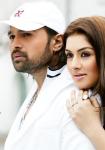The proposal to remove the Armed Forces Special Powers Act in some parts Kashmir is a ploy by anti-India forces to show that they are still relevant. It is also an insult to the Indian soldier, says Tarun Vijay.
Having kept silent till now, the Indian Army has strongly opposed any dilution in the Armed Forces Special Powers Act on these counts. The situation was still fragile and the gains made in the summer of 2011 needed to be built upon.
Unless a similar situation prevailed over the next two summers, it cannot be said that normalcy has returned to the Valley. Lifting the AFSPA from some selected pockets will result in terrorists seeking shelter in such areas and rebuilding their bases. Tactical space once conceded to terrorists, will be extremely difficult to regain.
All lines of communication pass through population centres and have to be kept open at all cost, and therefore the army needs to operate under the AFSPA in these areas.The army garrison/strategic assets are spread over in population centres and de-notification will render them vulnerable to terrorist action and hence require separate security arrangements.The army carries out seamless operations across districts of J&K. Partial revocation of the AFSPA will hinder such seamless operations and hence, was impractical. Even if the situation worsens in areas where the AFSPA has been revoked, politically it is unlikely that the decision can be reversed, or at best it will take months. The experience of Manipur is a pointer in this regard
Hence its clear that the real purpose of Omar Abdullah's demand to remove AFSPA from J&K is to show 'they' can bend Indian the government in New Delhi. The 'remove AFSPA' rhetoric is just an excuse, an alibi to tease and challenge India's state power whom they want to cut to size and tell pro-separatist elements, 'look we have shown who is powerful'.
Its a repeat of the Jawaharlal Nehru-Sheikh Abdullah syndrome of early fifties. Hence the different streams have come together . The separatist mafia led by Syed Ali Shah Geelani, National Conference's spokesperson Mustafa Kamal and Chief Minister Omar Abdullah and also the Congress, its partner in the state, are speaking in unison, using one language: 'AFSPA must go'
It's like hitting at the Indian Army through a glass door -- using the sham concern for 'peoples' anguish' and wrongly stating the the reduction in terrorist activities justify removal of AFSPA. It's never mentioned that the army already is not manning the day-to-day affairs of the internal security in the state and that they hardly invoke ASFSPA locally.
The J&K Police and Central Reserve Police Force do the internal security job, and in every single instance they too get orders from state government apparatus. Bulk of the army personnel in the valley are deployed on the Line of Control to check infiltration and keep an eye on Pakistan's Inter Services Intelligence-trained groups. The armed forces in J&K are doing an excellent job to control Pakistan-sponsored terrorist activities, for which policemen are not groomed.
The ground realities in Kashmir valley need a constant vigil and a smooth methodology to get information's on the enemy activities. The AFSPA helps the army take action without taking recourse to a lengthy and lethargic local administrative set up, which is ill equipped and often too afraid to facilitate urgent army action against traitors.
Kashmir is not normal. Having witnessed a brutal ethnic cleansing of the Hindus, the valley is now a virtual Islamic hub of extreme ideologies. There are no cinemas, no theatres, no freedom of expression, and every area of administration is seeing a shrinking of Indian authority with hardly an IAS or IPS officer given charge of a district.
The ultra-Islamisation of the Kashmir valley feeds separatism in every sphere of life. None, not a single politician in the valley ever protests the burning of the tricolour. They never blame Geelani for instigating youngsters to become stone peltors and shout anti-India slogans. Their universities and schools refuse to sing the national anthem. They never appreciate, even remotely, the sacrifices of the armed forces personnel to protect them and in fact ask and get heavy security protection from the same stone peltors they publicly sympathise with.
Still it's a fashionable secularism of the jihadi variety in the valley to blame armed forces at slightest hint for every ill they face. Valley leaders and the administration discriminates against the rest of the two important parts of the state, Jammu and Ladakh.
In this situation, Omar's diatribe against Indian Army is unpardonable. He and his ilk are alive and enjoying the throne because the soldier of Indian Army stands guard on his duty to protect every patriotic Indian. His life is full of harsh challenges and he remains the best symbol of India's pluralistic secular traditions. Politicians in Delhi and Srinagar might have dinner with anti-Indian cowards, taking advantage of India's misused and often abused democracy, yet it is the soldier's toughness that protects the Republic. Whether he wears khaki or olive green, the one that holds the tricolour and does his duty faithfully as Mother India's son and daughter, is publicly humiliated and insulted by corrupt assassins, who take oath holding the Indian Constitution in their hands.
For voters and assertive citizens, the Constitution remains the supreme sacred source of living and enjoying the benefits of a pluralistic democracy that ensures freedom of speech and action as well as defining their duties to the nation. That's what we call Naagrik Dharma -- a citizen's charter of being an Indian.
Omar, by speaking against the hands that protect him and the Indian Kashmiri, has violated the oath for protecting the sovereignty of the nation and to safeguard the honour of the men in uniform.
I have never, and I may repeat, never heard a Kashmiri politician or the faithful secular elite in Delhi uttering a word against the tricolour burners in Srinagar, Kupwara or Baramulla. October 26 was the day often observed by Indian patriotic groups as Accession Day, when the Maharaja Hari Singh had signed a document finally merging Jammu and Kashmir with the rest of India. The instrument of accession must be read again and again and the day observed in a sacrosanct way by every Indian who still feels the pain of having a separate law and a separate flag for Jammu and Kashmir.
But neither in Srinagar nor in Delhi does the vote-blind politician have time to hold a demonstration, meeting or simple small discussion on the future of a real Indian Kashmir in the light of the accession that was effected 64 years ago.
Sometimes it seems India is not so much bruised and ditched by foreigners and unfaithful marauders as by those who form the very core of the so called, patriotic and tricolour-holding stream. They rule. They resolve to take back parts of Kashmir snatched from us by Pakistan. And then they decide all that has to be forgotten and buried in the backyard of the vote bank politics.
They are the faces of a corrupt Delhi sultanate that have backstabbed the cause of Mother India. They are more interested in fighting their own kith and kin than forging a united front against the common foe. For them the first target to be downed is the next-door blood brother and not the tricolour burner in the valley.
They survive on durbar machinations and manipulations, a precipitated hate for the political rival, exhibit the revenge instinct of insects and then just for the sake of a registered obligation, speak of the Indian cause in Kashmir happily making news for the Delhi media.
We tend to forget that Kashmir is not just the land comprising of lakes, rivers and mountains. Kashmir is people also. Those who inhabit it, those who gave the valley a very distinguished and special identity and form an inseparable part of the wholesome idea of India. They are Muslims and Hindus both. Muslims too paid a price for being patriotic Indians as did those proud Kashmiri Hindus who were killed and maimed and raped and forced to flee from Kashmir for the 'crime' of adhering their loyalties to India and her Constitution.
Delhi's patriots and tricolour holders gave a free reign to anti-India propagandists, made special provision to give Kashmir a separate flag and a separate constitutional provision, separate laws and then wished separatism would end there.
Those who died for the complete unity of J&K with the rest of India, like Syama Prasad Mookerjee and the soldiers, were put in a category of xenophobic war mongers, anti-peace, anti-people, hence no one can even dare to put up a proposal to get a grand memorial at Lal Chowk for Indian soldiers who served and laid their lives there.
Try to say this in Srinagar or in New Delhi, and be ready to 'enjoy' the reaction from 'well meaning, reasonable, peace-loving intellectuals, having the full support from the ruling elite'.
When State power adds a glamour and respectability to those who are soft on the separatists demanding either full independence from India or supporting fissiparous tendencies, can we expect the young generation in the valley fed on such anti-India poison to live for the Indian ideal?
Tarun Vijay is a Rajya Sabha MP and national spokesperson of the Bharatiya Janata Party.









